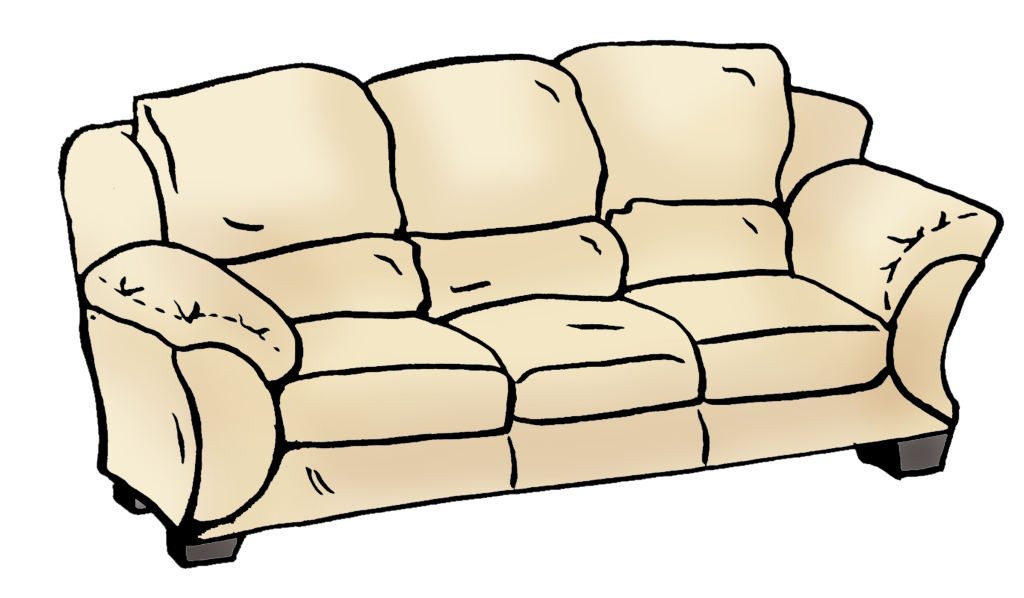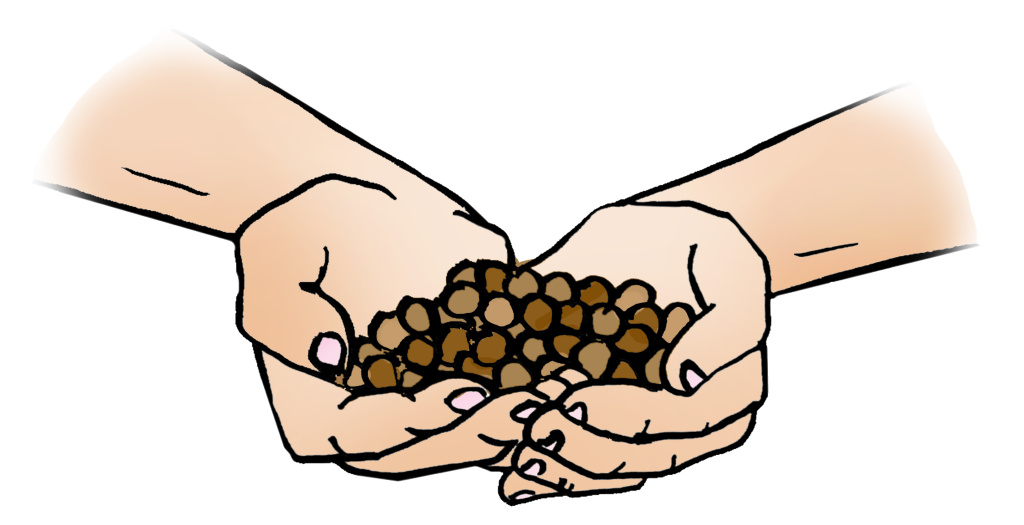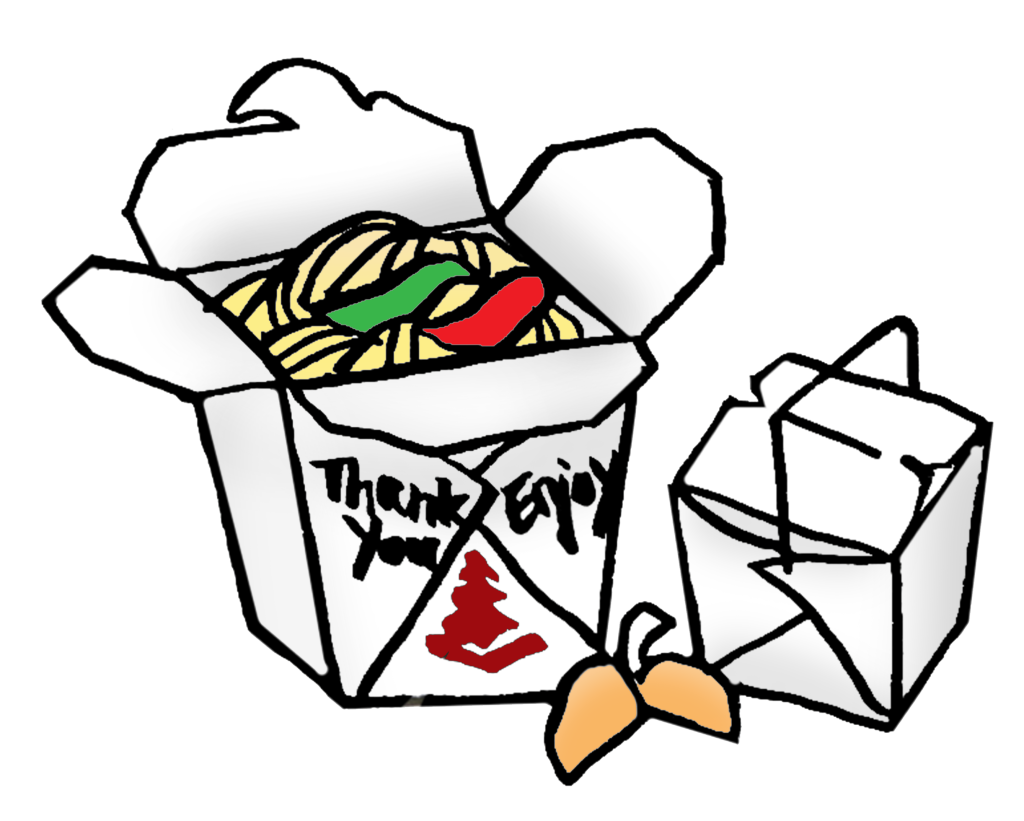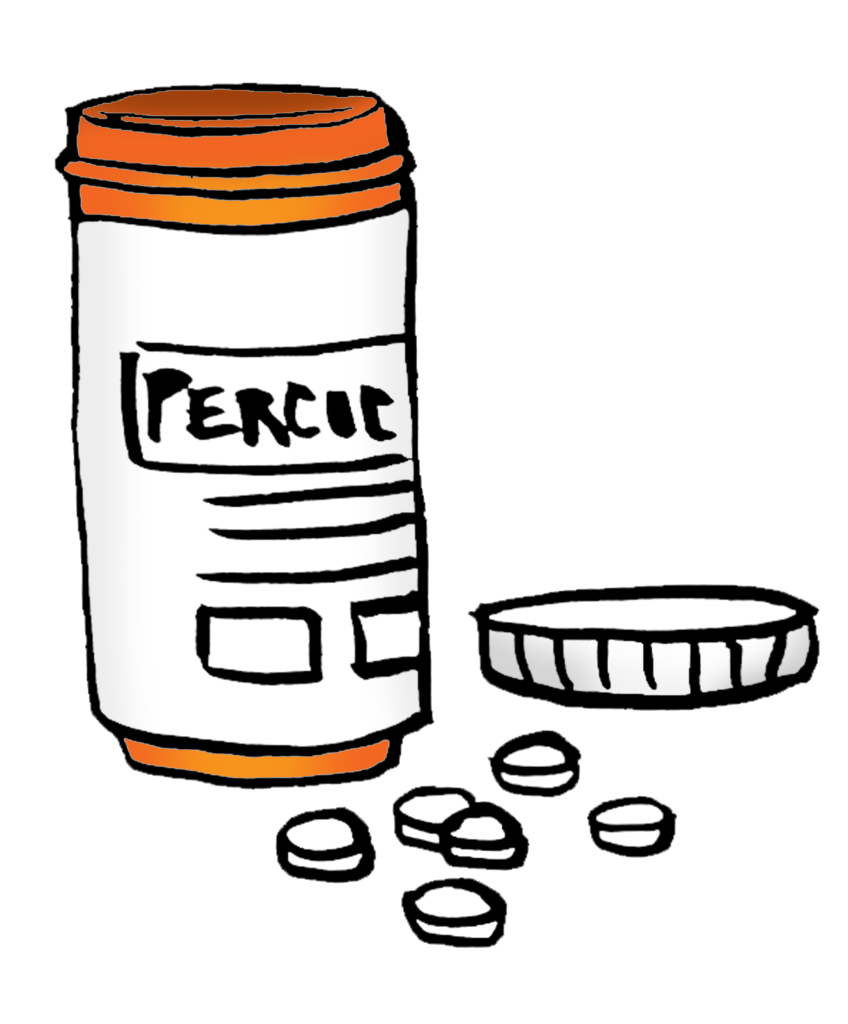Sivan (p. noun): /sē/vôn/
1. What they would call the baby girl.
2. Spring.
Origin: Her mother had always thought the name was pretty. She didn’t think to look up the precise meaning until after they’d printed the certificate. It was Hebrew for “Born in the ninth month,” which wasn’t very poetic. If Sivan ever asked, she would tell her the name meant “Spring.”
E.g. “What’s her name?”
“Sivan.”
“Pretty.”
Ema (p. noun): /ē/mə/
1. Hebrew for Mother.
2. Sarah Broder, now Mother.
Origin: Ema’s mother had called her own mother Ema, who was now Bubbe. Bubbe would like her to be an Ema, she figured.
E.g. “Ema! I want bed!”
Abba (p. noun): /ô/bə/
1. Hebrew for Father.
2. Josh Catz, now Father.
Origin: If she would be Ema, he would be Abba.
E.g. “Abba loves you very much.”
“Sh! Abba is sleeping, pretty girl.”

Big Loofy (prop. noun): /big/loo/fē/
1. The living room couch.
Origin: Unremembered.
E.g. “I wanna jump on Big Loofy!”
Smiley (noun): /smī/lē/
1. The round bare stretch of a balding head.
Origin: Sivan thought Abba’s bald spot looked like a smile.
E.g. “Is Abba wearing the smiley hat?”
“It’s called a kippa, Sivan.”
Elijah (noun): /ē/lī/jə/
1. A scary man.
2. Penis-taker.
Origin: They’d put a chair aside at the bris for Elijah, the prophet. Sivan thought he was a man who was coming to take Aaron’s penis, so she could have a sister.
E.g. “Ema I don’t want to go in there. It’s full of Elijahs.”

Aaron (p. noun): /erən/
1. What they would call the baby boy.
2. In Hebrew: high, exalted, tall mountain.
Origin: Abba’s grandfather had been an Aaron. Ema was relieved when she looked up the name’s meaning. It was sturdy, just like the chubby boy.
E.g. “What’s his name?”
“Aaron.”
“I have an uncle named Aaron.”
Burpy (prop. noun): /’bəːpiː/
1. Aaron.
Origin: Sivan thought it was funny that Ema had to burp the new baby when Sivan could burp herself just fine.
E.g. “Are we bringing Burpy to school?”
Mikvah (noun): /mikvə/
1. What Ema calls Aaron and Sivan, when they are good.
2. What Ema calls Aaron and Sivan, when she sleeps in their bed — before they move to the apartment on Cedar and get separate rooms.
3. What Ema calls Aaron and Sivan: something small, something safe.
Origin: A Mivkvah is a Jewish ritual bath that wholly purifies. Ema went to one at her mother’s request after her first and only miscarriage. She left with the distinct feeling that she had been unhusked, that she had left some part of herself floating in that pool.
E.g. “Goodnight my little mikvahs.”
“Goodnight Ema.”

Peecee (noun): /pē/sē/
1. A piece of something.
2. A handful of something.
3. A look at something.
Origin: Sivan was upset that Abba always fell asleep when they went to the movies, so he would let her get candy as compensation. She chose Reese’s Pieces every time. Abba pronounced them “Ree-sees Pee-sees.” He would ask Sivan in the middle of the movie: “Can I get some peecees?” Abba liked them so much he sometimes stayed awake through the end.
E.g. “Burpy give me a peecee.”
“What do we say, love?”
“Please?”
Abba is sleeping (phrase): /ô/bə/ /iz/ /slēp/iNG/
1. Abba is passed out on the upstairs futon.
Origin: When Sivan used to ask where Abba was and Ema did not feel like explaining.
E.g. “Where’s Abba?”
“Abba is sleeping.”
“Again?”
“Again.”
Pepsi (prop. noun): /pep/sē/
1. Sivan
Origin: Because Sivan made Aaron, “Burpy.” And Pepsi made Aaron burpy.
E.g. “Pepsi! There’s eggs! And we’re leaving soon!”
Kugli (adj.): /koo/gə/ lē/
1. Messy, disordered.
2. Hot, damp, sweaty.
Origin: When Bubbe came and Ema tried to cook traditional kugel for Shabbat, the pan came out with a centimeter of gray water hovering over the pudding’s surface. Bubbe told Ema she didn’t have to pretend to be Jewish for her. Ema said she wasn’t pretending and didn’t speak to Bubbe the rest of the night. Abba recited the parsha from memory, one of the sections he still knew from Hebrew school, decades ago. Aaron said the kugel was the grossest thing he had ever seen in the whole world. Sivan kicked Aaron so he’d shut up.
E.g. “Don’t go in my room right now, it’s so kugli.”
“Take a shower Burpy, you’re all kugli.”
Bibi (phrase): /bē/bē/
1. I love you.
2. I am sorry.
Origin: Someone misspoke “Burpy” or “Pepsi” or “Excuse me.” Someone else kept saying it. Someone else wrote it down.
E.g. “Burpy?”
“Yeah?”
“Bibi.”
“Bibi too.”
Take a Shiv (phrase): /tāk/ /ə/ /SHiv/
1. Sitting Shiva.
2. Dying.
Origin: When Bubbe passed, no one remembered to explain shiva to Aaron. Not even Sivan. When he asked, frightened, “Do I have to take a shiv?” Ema asked him what he meant and it turned out no one remembered to watch him, either. Unsupervised, he’d seen a documentary on prison fights the night before, in which he’d learned about shanking. He had thought they would all take shanks to go join Bubbe. It was the only time Ema laughed that week.
E.g. “If he forgets one more time he’s taking a shiv.”
“I’m going to stop by the Meyersons, they’re taking a shiv.”

Suburbadurb: /sə/bər/bə/dərb/
(adj)
1. Something very suburban, such as a minivan, PTO meeting, book club, etc.
(verb)
1. Doing something that is very surburban, such as driving a minivan, attending a PTO meeting, organizing a book club, etc.
Origin: The first time Ema signed up to bring snack for Aaron’s rec soccer game and brought blood oranges instead of normal ones, the team walked back on field looking like a flock of vampires. One of the boys on the other team had started crying and the ref called a penalty. The other mothers didn’t talk to Ema for a full week’s practice.
E.g. “Oh screw all that suburbadurb crap.”
“Let’s go Burpy, we’re suburbadurbing in five.”
Asshat (noun): /ə/SHat/
1. Harry Trusman.
2. Someone mean and dumb, like Harry Trusman.
Origin: Second lunch at lower school when Aaron forgot his bag so Sivan fed him grapes from her lunch tin, Harry Trusman hollered to the whole playground: “Sivan and Aaron love each other!” Aaron, who had not spoken more than four words to his second grade class, yelled, “Harry Trusman is an asshat!” He pronounced it wrong but everyone knew he’d just swore something bad and Harry left them alone after that.
E.g. “Stop being such an asshat and give me the remote.”
Hooker (noun): /’hookər/
1. One who skips school
Origin: Sometimes Sivan would put on Ema’s low voice and call the two of them in sick — “playing hooky,” as Abba used to say. After Ema left for work they would get a hoagie and go to the park. There was a family of ducks they used to try and feed, but they could never throw the bread far enough.
E.g. “Shh, Burpy, we’re being hookers today.”
*8* (symbol): unpronounced
1. Abba is drunk
Origin: They wanted a symbol to text each other. Aaron suggested an 8 because it looked like a bottle. Sivan didn’t see the resemblance and added the stars, so they’d know it wasn’t any old 8.
E.g. r you home?
yes. *8*
again?
again.
To jewmanji (verb): /joo/män/jē/
1. To play Jewish.
2. To pretend you are comfortable with faith.
Origin: Sivan got a job working daycare at the synagogue, because there was money, though not that much. The other girls worked there because they were Jewish, and it was a good thing to do, to look after children. The other girls wore needle-thin necklaces with Stars of David. The other girls could read Hebrew. Sivan started going to services, but could never pay attention, so she stopped. Aaron told her to play like the other girls, as if it were a game, like the board game in that movie with Robin Williams.
E.g. “How was work Peps? You jewmanji ok?”
Bambi (noun): /bam/bē/
1. One of the girls who follows Aaron home from school, touches Aaron’s arm when making conversation, leaves notes in Aaron’s locker, leaves a bottle of Drakkar Noir in Aaron’s locker with the note: “Not that you smell bad, my dad had extra lying around,” doodles Aaron’s initials across her English homework and turns it in without erasing them, etc.
Origin: Around Aaron’s sophomore year when his arms swelled up like ripe fruit and people stopped making fun of him for his dark eyelashes and Sivan found his name inscribed twice in the same bathroom stall, Ema had noticed a few girls walking him home. He had tried to shake them before they’d reach the eyesight of the apartment’s front window but they wouldn’t leave. Ema asked about his “bambis” when he walked through the door and he had flushed blood-dark. He didn’t like it, so it stuck.
E.g. “Why don’t you invite a bambi over for dinner sometime?”
“You taking a bambi to the dance, Burpy?”

To scoop (verb): /skoop/
1. To grab take-out.
Origin: Ema was always tired, and Abba was always Abba, which is to say upstairs on the futon. Sometimes Sivan would look in the fridge and it was all condiments with varying months of use. She’d grab the keys and Abba’s wallet and go to the strip mall with the Thai places.
E.g. “I’m scooping — you want anything?”
Pepsi Card (phrase): /pep/sē/ /kärd/
1. A favor from Sivan, such as: money, a ride, lying to Ema.
Origin: When Aaron was in high school and would go to house parties in his teammates’ beige neighborhoods. When Aaron was too drunk to drive home. When Aaron got kicked out of prom for getting caught on LSD, though he said he didn’t know he had taken any. The one time Aaron got a bambi pregnant. Sivan drove them to the clinic. Aaron held the girl’s hand so tight, Sivan remembers thinking the girl must have been in pain.
E.g. “Just this once, please?”
“You have swiped your Pepsi Card for the last time this week.”
( ) (p. noun): a resting silence
1. Abba.
2. What they have to say about Abba.
Origin: When Ema came home after work and Abba was still passed out on the upstairs futon. When she could not lift his body. When she could not close his dull eyes.
E.g. “I’m sorry for your loss.”
“( ).”
Take a Shiv (phrase): /tāk/ /ə/ /SHiv/
1. Sitting Shiva.
2. ( ).
Origin: That week they received more food than the house could hold. No one was hungry. Aaron and Sivan hid from their relatives in the bathtub. Aaron opened the cupboard and found a bottle of French aftershave that must have been Abba’s. He dripped a bit on his neck but it didn’t smell like Abba. He wondered if he would ever forget the smell of his father.
E.g. “One more day of taking a shiv Burpy, one more day.”
“( ).”
Musli (noun): /moo/sə/lē/
1. One of Aaron’s soccer friends.
Origin: They were “musli” because they were built and “muscle-y,” and because they were bland like muesli, the oatmealy thing that Bubbe used to eat for breakfast.
E.g. “I’m going over to Ben’s.”
“Who’s Ben?”
“A musli.”
“Oh. You need a ride?”
Win the lotto (phrase): /win/ /THə/ /’lädō/
1. Pulling an all-nighter.
Origin: When Sivan was away at school, she’d call Aaron a few times a day. School was more work than she thought it would be, though everyone else felt that way, Sivan figured. Aaron suggested they call “all-nighters” something fun, so the slow tired would feel like a gift.
E.g. “Can I call you back? I have practice in ten.”
“Yeah. Call whenever. I’m winning the lotto tonight.”
“Congrats Peps.”
“Thanks Burps.”

Peecee (noun): /pē/sē/
1. Percoset
Origin: When Aaron tore his ACL, he moved back in with Ema. For six months he sat on Big Loofy. The bulk of his body was a landscape.
E.g. “Ema.”
“Yes?”
“Peecee. Please.”
The Talk (phrase): /THə/ /tôk/
1. The conversation about getting Aaron back in school.
Origin: After medical leave, he took the year off. After the year off, he dropped out. When Sivan asked, he said he would return the next year. He was getting a job. His friend’s dad needed help in the office. It’s fine, he said. Drop it, he said.
E.g. “How do you feel about having the Talk right now?”
“Again?”
“Again.”
Hammy (p. noun): /ha/mē/
1. Sivan’s landlord
Origin: She had told Ema on the phone that his hands were hammy — like wet slabs of meat. Ema had been falling asleep and not entirely listening. She’d thought that was just his name. The next call she asked Sivan about her friend, “Hammy.” Sivan laughed.
E.g. “I’ve emailed Hammy about it twice but he hasn’t responded.”
Aaron is sleeping (phrase): /erən/ /iz/ /slēp/iNG/
1. Aaron is passed out on Big Loofy.
Origin: When Sivan kept asking where Aaron was and Ema did not know how to explain.
E.g. “Can I talk to Burpy?”
“Aaron is sleeping.”
“Again?”
“Again.”
Asshat (noun): /ə/SHat/
1. Sivan’s current boyfriend.
Origin: She met a couple nice boys online. One at a cooking class. Another through a friend of a friend. They were dark-haired and smart. Aaron hated all of them, though he never met one.
E.g. “Yeah I’m going with Mike.”
“That asshat?”
“You don’t even know him.”
“I don’t need to know him.”
Gay Avek (phrase): /gī/ə/vek/
1. Yiddish for “Get out of here!”
2. Aaron, go do something.
Origin: Ema bought a Yiddish phrasebook on a whim and flipped through it that afternoon. “Gay Avek” was the only phrase she remembers her mother saying to her, when she was in college and thought she would never graduate and would sit in her bed for whole days biting her fingernails off. She started saying it to Aaron, though he mostly just nodded and said he had an interview next week. She hasn’t seen him in a tie since high school.
E.g. “Aaron, the sun is out. Gay avek!”
“Tomorrow, Ema.”
“( ).”
“All right.”
The state (phrase): /TH/ /stāt/
1. A pleasant fog of intoxication, induced by alcohol and/or Percocet, Oxycodone and/or Demerol.
Origin: Aaron.
E.g. “Is he in the state right now?”
“Don’t.”
( ) (verb): to rest in silence
1. I do not have anything to say to you.
2. I do not have anything to give to you.
3. I love you. I am sorry.
Origin: Unremembered.
E.g. “Ema?”
“( ).”
Don’t (phrase): /dōnt/
1. Please don’t bring up Aaron.
2. Please don’t bring up Aaron getting back to school, he’s working on it.
3. I am very tired.
Origin: Ema could tell from the tone of Sivan’s voice when it was about to spill out.
E.g. “Ema.”
“Don’t.”
“( ).”
“Ema.”
Happy Shalom (phrase): /’hapē/ /SHə’lōm/
1. Happy holiday we forgot to celebrate.
2. We are not comfortable with faith.
Origin: Sivan’s friend bought her a calendar with all the Jewish holidays printed in the corner. Most of the time she forgot to rip the sheets off, but sometimes she would notice the neat Hebrew, mention jokingly to Ema that she couldn’t remember what the words meant.
E.g. “Happy Shalom Em.”
“Which one is it?”
“I don’t know.
Aaron (p. noun): /erən/
1. In Hebrew: high, exalted, tall mountain
2. What Sivan calls Aaron.
Origin: Unremembered.
E.g. “Happy Birthday Aaron. Hope you’ve had a good year. Give me a call when you get this message.”
Gooey (noun): /’gooē/
1. One of the people on TV.
2. One of the people in the neighborhood who walked their dogs, or their kids, or themselves.
Origin: He found them gooey, somehow — their happiness, the way they talked to each other about nothing of particular importance. Aaron couldn’t remember when he’d stopped being able to do that — speak like them, make small talk with neighbors and cashiers, the language a sort of social currency. He said it once at loud and Ema thought he’d mispronounced “Goy.”
E.g. “What are you watching?”
“I don’t know. MTV. Gooies.”
Bibi (phrase): /bē/bē/
1. I love you.
2. I am sorry.
Origin: Someone misspoke “Burpy” or “Pepsi” or “Excuse me.” Someone else kept saying it. Someone else wrote it down. Then Abba forgot it. Then Ema forgot it. Then Aaron remembered, like a floodwater, Sivan’s long, warm hands on his shoulders.
E.g. “Sivan?”
“( ).”
“Yeah?”
“Hi.”
“( ).”
“I didn’t think you would call.”
“I know.”
“( ).”
“Sivan?”
“Yeah?”
“Bibi.”
“( ).”







